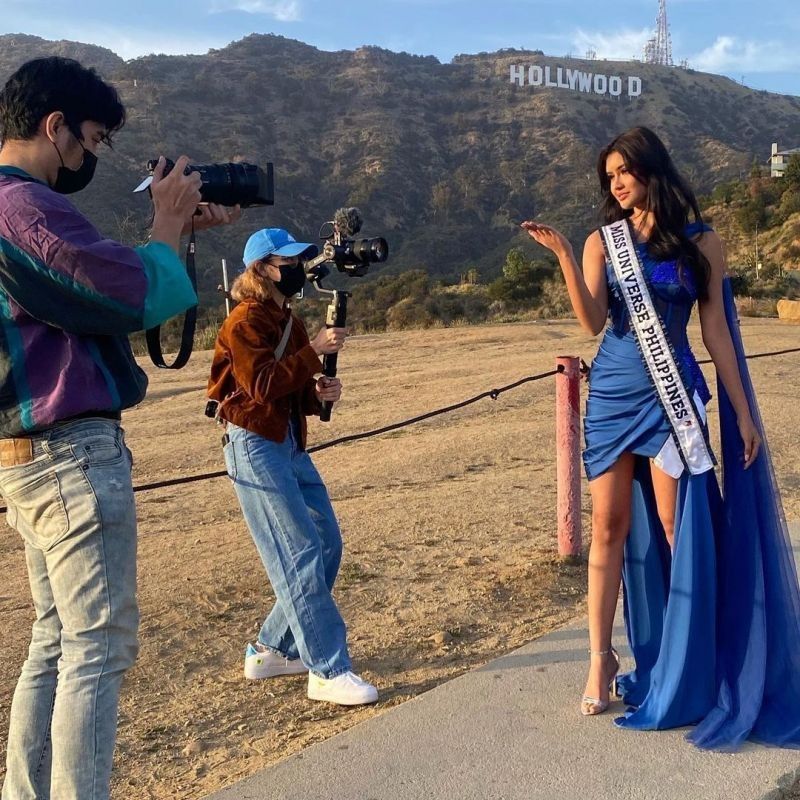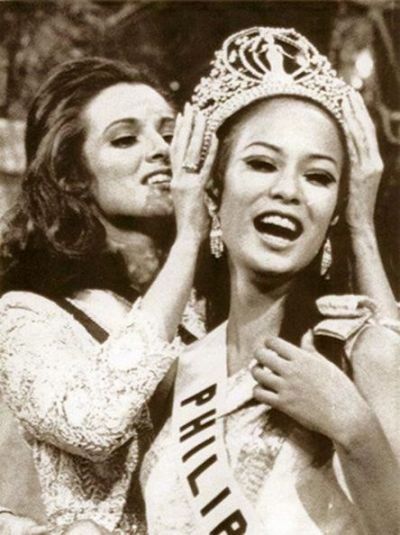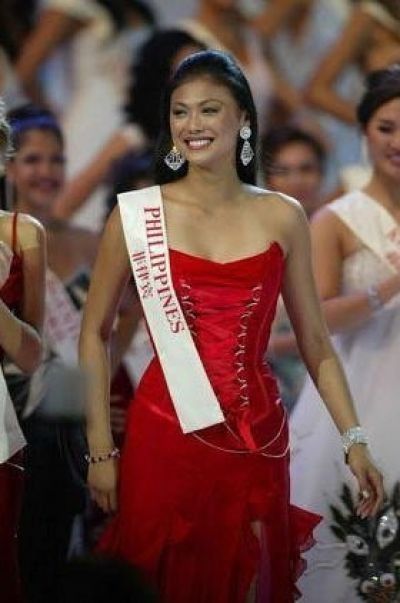Are beauty pageants still relevant in a pandemic?


The Philippines’ very first Miss Universe Gloria Diaz turned 70 last April 5. She wanted to conceal her age, but as she would tell me in our recent “Pamilya Talk” episode, she wouldn’t fool anyone anyway. So, the mom of four and just recently the grandmother of four (congratulations to Belle Daza’s second child Valentin!”) just let things be.
“I want to hide sana na I’m 70, but when (people) say that ‘In 1969, an 18 year-old girl (won Miss Universe)—paano eh ang dali-daling i-(Math) yan?” she laughed.
I’ve always admired the gorgeous Gloria Diaz, who bagged the country’s first ever Miss U title days before man first stepped on the moon. Fifty-two years ago, she was just a teenager who agreed to join Binibining Pilipinas just for the adventure. The doe-eyed Glory didn’t even fully realize then that an international pageant would follow the local version, sending her to as far as Miami, Florida.
On our show, Gloria had fun recalling the olden times, “(My parents) didn’t even know if I had money in my pocket or what. Wala nga akong dalang pera papunta, eh!”
She added her Mommy and Daddy were “more surprised than me na nanalo ako. They weren’t the type who knew beauty contests. They didn’t watch me — even on TV! Kasi noon, di naman uso masyado, eh.” After being crowned, Gloria would eventually get a call from them in Manila, only to be cut short “dahil mahal ang long distance!”
Gloria has since transitioned from pageantry to showbiz, doing TV and film work here and abroad. She had a cameo on Netflix’s "Insatiable" in 2019 portraying, what else, but a venerable beauty pageant icon?

Gloria Diaz being crowned as the first Filipina Miss Universe by her predecessor, Brazil’s Martha Vasconcellos, in Miami, Florida, on July 19, 1969 (July 20 in the Philippines). Image courtesy of: The STAR/Ricky Lo
Half a century later, Gloria remains thankful to her Miss U experience. She says it’s truly changed her “in a positive way.” Despite the world-popular contest and the likes finding itself in question of relevance amid a pandemic, she still believes there’s still some significance to it.
Our pageant-crazy world
“Ibang klase ang labanan ngayon, di ba? It’s a new age,” Gloria said, probably an understatement to say how pageants like the much-publicized, heavily sponsored Miss Universe is put on a pedestal in recent years.
Special thanks to Miss Gloria plus succeeding Filipina title holders Margarita Moran (1973), Pia Wurtzbach (2016), and Catriona Gray (2018), Miss U is always a spectacle in the country — encompassing genders, age groups, or backgrounds. In the last 10 years, the pageant has seen at least seven ladies besides the eventual winners making it in the top 10.
Surely, enthusiasts and spectators alike have become critical of our dear contenders. Contestants have been put under a microscope like some sort of public official. Do her looks stand out? How fluent can she answer in English? What are her advocacies?
With a health crisis crippling many industries including the entertainment scene, the 69th Miss Universe pageant got postponed from late 2020 to May 16 (US time). It faced a one year and a half delay, following the coronation of Zozibini Tunzi of South Africa in December 2019.
The pageant sashays in a few weeks, with the world gradually recovering even at 157 million cases and counting. This now begs the question: Are beauty pageants like Miss U still relevant today?
It’s tricky.
But Miss Gloria could only reiterate, “Sabi nga nila, beauty has its own excuse for being.” In candor, she continued. “There’s always a time to admire things. It’s the same as when you go to my garden and see my (plants and flowers). Or, if you see a nice picture of whatever --- a dress or something.”
Politics meets pageants
Yet, Miss Gloria believes the pageant stage could also set a platform for women to bare their political perspectives. She thus applauds our contender Rabiya Mateo —Ambassador for Education and Member of the Ethics Committee, Infant and Pediatric Nutrition Association of the Philippines — for having it this way.
Last February, the 24 year-old Ilongga commented against President Rodrigo Duterte’s claim on women not being “emotionally” fit for a presidential job.
“In our country, we already had two female leaders and by doing that, women are as capable as men in handling a nation,” she earlier told pageant site Missosology. “I just want to give an example of what happened in New Zealand in conquering (the) COVID virus in which their female leader was able to nurse a newborn, but at the same time, she was able to become a mother to her land… I won’t agree with something like this because I know my capabilities and my strength as a woman and I know I can make a difference, so much difference.”
Just last week, Rabiya apologized on behalf of Filipinos who had thrown racist remarks toward Nova Stevens—a black, fellow Miss U contender representing Canada.
“It takes no time to be kind. I learned in this industry that people tend to be cruel. We should not normalize that aspect. When you see something is not right, you correct it. You have the power to do so. People are listening to you. That's why, I think this is also the best way for me to shine kindness and the spirit of being humble. So regardless of what type of competition we are in, I hope that the Filipinos will still be able to be respectful,” she said in a virtual press conference.
For Miss Gloria, who could only admire the vocal Rabiya from a distance, the young lady’s outspokenness is only a good thing.
“Maybe she feels strongly about it. Sa akin, okay lang yun,” she said. “You have to have some kind of opinion. You cannot be playing namamangka sa dalawang ilog.”
Pageants going digital
Miss U isn’t the only pageant evolving in recent times as Miss Gloria has especially witnessed. With some still arguing pageants as remnants of a patriarchal past, these contests remain popular with their enduring thrust toward women empowerment. And I’m not just talking about pageants for a specific cause like our own Miss Earth, which centers on environment protection.
Filipino streaming app Kumu recently held its own — Miss Kumu Global Pageant — as a way to honor young women “who are inspiring, who are talented, and who are willing to give back.” It ran digitally for two weeks, with the mentoring sessions all done via screen. True to Kumu’s collaborative streak, it drew together contestants from different countries like Italy, Ireland, Canada, the USA, the Middle East, and the Philippines. What was noteworthy about the contest besides being purely online: Height didn’t matter.
Miss Kumu Global Pageant mastermind and Miss World 2003 Top 5 finisher Mafae Yunon-Belasco joined me on the same episode to discuss the contest and the significance of beauty pageants in general.

Mafae Yunon-Belasco in Miss World 2003
“The pageant platform is truly an amazing one. If you only know the value and the power that pageants have… The crown and the sash allow you to network — because your network becomes your net worth.”
Mafae, whom I similarly admire for her beauty and poise, would know. An enterpreneur, a motivational speaker, and a mother of six, she has used her title to help broaden her advocacies.
“If you want to join a pageant, look at it as a leveling up — your career, yourself, what you want to do, your advocacy and passion,” she advised. “It’s always about giving back. If you’re all about good karma, respecting your work and respecting yourself, the Lord and the universe will bless you tenfold.”
Beauty pageants have indeed changed since the time Gloria Diaz got us Filipinos hooked — but only for the better.
--
Please watch Pamilya Talk on Facebook, YouTube and Kumu (@JingCastaneda – 6pm Monday & Wednesday; 7 p.m. Tuesday). Please share your stories or suggest topics at jingcastaneda21@gmail.com. You can also follow and send your comments via my social media accounts: Instagram, Facebook, YouTube, Twitter and Kumu.



















